This M’sian insurtech biz has expanded to the Philippines with products for rural banks
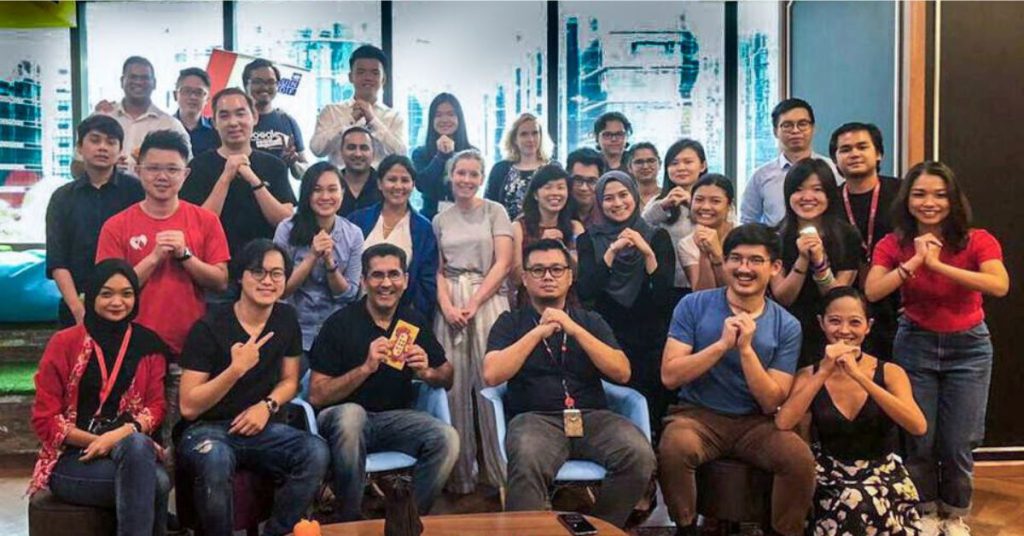
Senangdali, a subsidiary of Malaysian insurtech startup Senang.io, has partnered with Philippine fintech firm GoodTech, to offer loan protection insurance products tailored specifically for rural banks in the Philippines.
Underwritten by local insurance providers, this innovative product aims to transform financial security for over 57 million Filipinos, a significant 52% of the country’s population, a press release stated.
The Philippines is home to over 350 rural banks, serving as critical financial pillars in their local communities.
Recognising the unique needs of these institutions, Senangdali has created an insurance product that seamlessly integrates with the banks’ existing offerings. This initiative not only enhances the banks’ service portfolio but also strengthens the financial stability of their clients.
A strategic partnership
This initiative is a result of a strategic collaboration with GoodTech, facilitated by the Malaysia Digital Economy Corporation (MDEC) through the Digital Exports Division (DEX) Connex Philippines 2024 programme.
MDEC’s DEX designed the platform to expand the revenue footprint of Malaysian tech companies into regional and global markets.
Following the rollout of the loan protection insurance, the partnership plans to introduce a motor aggregator platform and personal accident insurance, further diversifying the range of services available to rural banks.
Jove Tapiador, cofounder of GoodTech, emphasised, “Protection for the everyday Filipino and their loved ones is paramount. Microinsurance is the fastest-growing segment of the market, and our alliance with Senangdali enables our commitment to protecting families through our rural bank partners.”
Key features of loan protection insurance
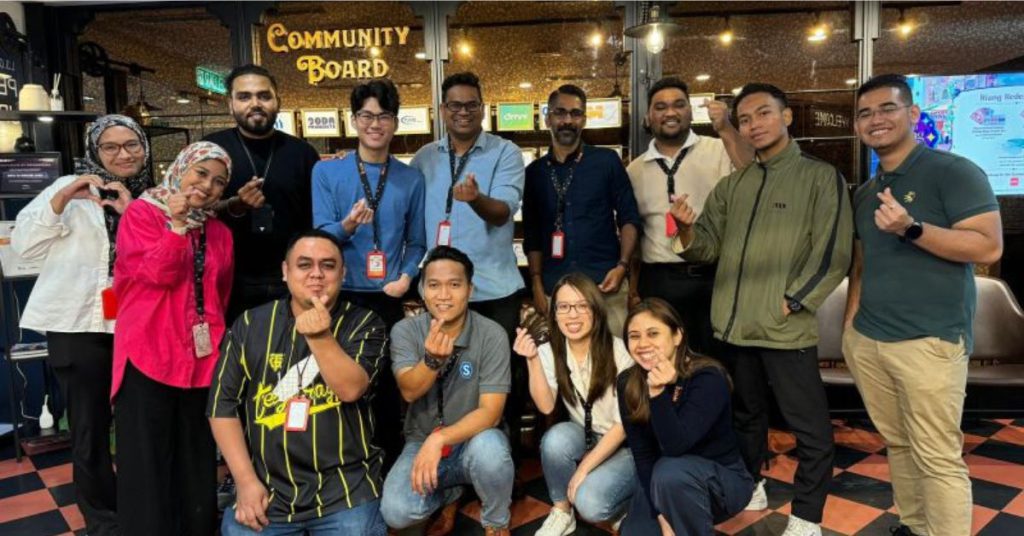
According to Senang CEO Sharian Raj, it offers customisation to fit each bank’s unique loan products, covering aspects like loan amount and tenure.
It also provides protection for death, personal accidents, and hospital income, with plans to include credit default coverage soon. The insurance covers a wide range of loan types, including personal, agricultural, and microfinance loans.
“What sets our product apart is the customisation and integration process tailored for each rural bank, ensuring that their specific needs and the needs of their customers are met with precision,” he said.
The claims process is simplified to make it easy for rural customers, with claims typically processed within seven working days and 10% of the claim amount transferred to bank or e-wallet accounts within 24 hours.
Plus, the premiums are affordable. “The premium starts as low as US$3, embedded as part of the loan instalment payment, so clients don’t have to pay extra,” said Sharian.
Looking ahead
While the initiative is ambitious, it is not without its challenges. These challenges include ensuring smooth Application Programming Interface (API) integration across diverse banking systems, providing adequate training to bank staff and customers, and navigating the regulatory landscape for full compliance.
However, Senangdali is confident that its robust support systems and partnerships with local institutions will help overcome these obstacles.
Senangdali’s long-term goals for this loan protection insurance programme in the Philippines are clear:
- Reach 1 million customers within the next 12 months.
- Expand product offerings such as introducing additional insurance products to address a broader range of needs.
- Enhance financial inclusion to ensure rural communities have access to comprehensive financial protection.
- Sustainable growth to foster economic stability and growth in rural areas through innovative financial solutions.
This innovative approach is expected to significantly enhance the accessibility and affordability of financial services in rural areas, fostering greater economic stability and growth within these communities.
With Senangdali and GoodTech at the helm, rural banking in the Philippines is set to experience a transformative shift, bringing greater financial security to millions.
Also Read: Net zero explained: Why Amazon, Microsoft, & M’sia itself are pledging to be carbon neutral
Featured Image Credit: Senang
This M’sian gave up a 5-figure salary to teach kids as young as 7 to think like entrepreneurs
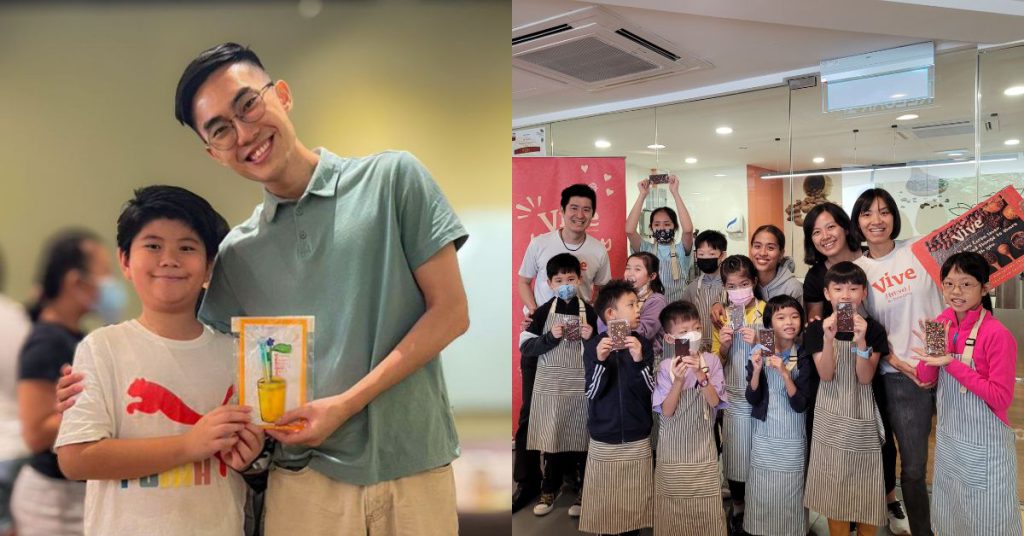
Forget the traditional route of memorising facts and figures until your brain feels like mush.
Rich Hero Edu isn’t your typical classroom. It’s on a mission to revolutionise the way children learn by igniting their passion for exploration and problem-solving through entrepreneurship education.
Eugene Lee, a young entrepreneur who discovered his calling later in life, founded the company in December 2020.
But he wasn’t always set on this path. After venturing into data analysis and automation, he realised there was more to life than just crunching numbers.
While his background experience was not related to education, it significantly shaped his work ethic and belief in lifelong learning.
During this time, he also pursued side hustles like property investment and coaching, broadening his perspective on life and career.
“The inspiration to venture into education didn’t happen just because of one, but many life experiences I had in my early 20s,” he said.
A pivotal moment came during his quarter-life crisis when he questioned his purpose and direction.
Despite earning a five-figure salary at 25, he found himself asking deeper questions about life and reflecting on the many people he had met who were financially and personally lost. This introspection led to the realisation that practical lessons and entrepreneurial skills should be taught from a young age.

From stock market smarts to lemonade stands
Rich Hero Edu’s journey wasn’t a linear path. It was fraught with challenges, from designing lessons without formal teaching experience to finding a clear niche and mission.
Initially, lessons were impromptu and unfocused. However, through persistent self-learning, feedback from parents, and iterative improvements, the vision became clearer to focus on entrepreneurial education for tweens and teens.
Entrepreneurship, encompassing financial literacy, self-confidence, global awareness, and practical experience, became the focal point.

“I choose to focus on entrepreneurial education for tweens and teens because the learning of these valuable mindsets, knowledge, and opportunities to practise should start from young before it’s too late. Kids can learn new things the fastest. They have the energy and they are curious. They are much easier to mould,” he told Vulcan Post.
Transforming classrooms into mini-entrepreneurship hubs
Eugene brings Rich Hero Edu’s vision to life with project-based learning (PBL), where students engage in real-world projects, interact with professionals, and develop valuable life skills.
Collaborations with entrepreneurs, social enterprises, and NGOs provide practical experiences, from tackling plastic pollution with Selangor Maritime Gateway to running a lemonade stand for financial literacy.

“We teach kids about budgeting, sales, profit, loss, and more, all by giving them a small capital to start their lemonade stand in The Food Merchant, one of our working partners. They have to decide what they need, do it, set their price, and sell it.”
“At the end, based on their results (either profit or loss) we reflect and debrief with our students. There’s always something to learn from our students whether they make a profit or a loss,” shared the founder.
This method not only equips them with valuable skills like communication, teamwork, and problem-solving, but it also helps them develop a sense of agency and purpose.
From shy students to confident changemakers
The impact is undeniable. Rich Hero Edu has witnessed shy students blossom into confident communicators as they learn to pitch their ideas and navigate customer interactions.
They’ve seen firsthand the power of resilience and emotional intelligence as students learn from setbacks and bounce back from rejections encountered during their “marketplace” projects.
Eugene’s ultimate goal is to instil a love for learning, encourage self-discovery, and prepare students for future challenges.

By aligning their projects with the UN Sustainable Development Goals (SDGs), they’re not only equipping students with entrepreneurial skills but also inspiring them to become changemakers who can tackle global challenges like poverty, climate change, and inequality.
As of now, Rich Hero Edu has impacted over 300 students from the age of seven to 17 through various workshops and programmes. The shift from fully online to a hybrid (online and physical) learning model has enhanced the learning experience, Eugene shared.
The vision for the future
Looking ahead, Eugene has ambitious goals for Rich Hero Edu.
He dreams of a future where entrepreneurship education becomes a cornerstone of the national curriculum, empowering every student to become a problem-solver, a leader, and a force for positive change in the world.
“Under local conventional education (primary and secondary schools), there is a lot of rote memorisation, a lack of personal exploration, expression, and self-taught ability.”
“However, I see our entrepreneurial education as a consistent and relevant way to help students explore various industries, build the right attitude (such as grit), identify opportunities, and handle uncertainties (plus many more qualities, to be honest) more realistically. Which later helps them to better pursue whatever they wish to do, be it a career or business,” he said.
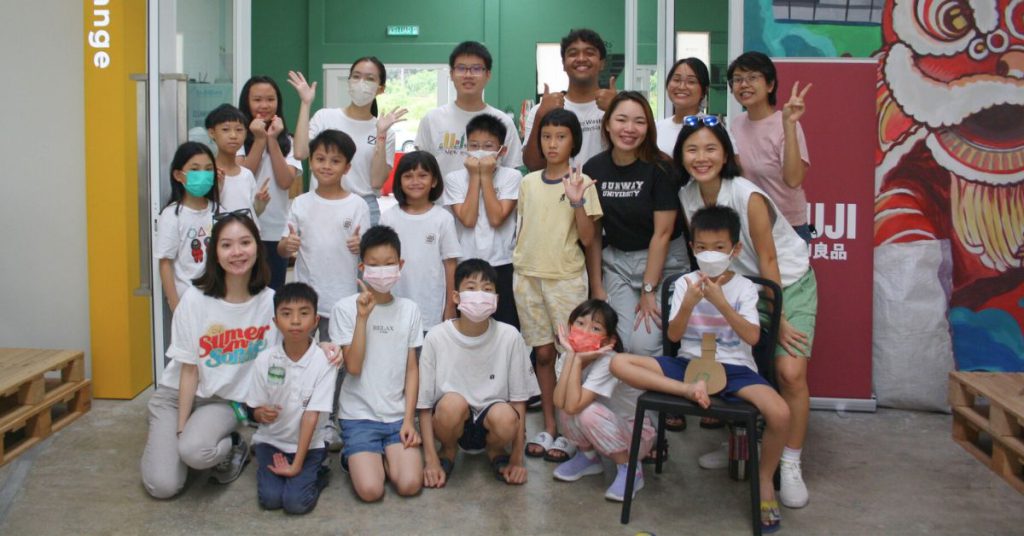
He is actively seeking partnerships with schools and educational institutions to realise this vision.
In the meantime, Rich Hero Edu is constantly innovating. Eugene is exploring ways to turn student-generated business ideas into reality, potentially through partnerships with large corporations. He also wants to expand their team to accommodate a growing student body.
Rich Hero Edu isn’t just about teaching; it’s about inspiring. It’s about igniting a passion for learning, fostering a growth mindset, and empowering young minds to become the world’s future leaders and changemakers.
- Learn more about Rich Hero Edu here.
- Read other articles we’ve written about Malaysian startups here.
Also Read: Net zero explained: Why Amazon, Microsoft, & M’sia itself are pledging to be carbon neutral
Featured Image Credit: Rich Hero Edu
What’s the digital bank for your buck? Benefits of GXBank, AEON Bank & Boost Bank, compared.
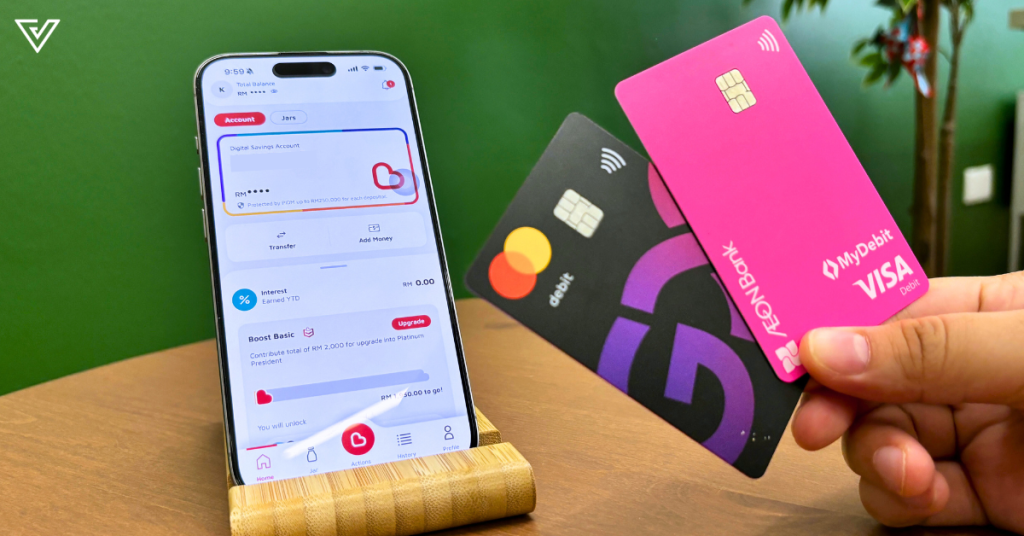
Now that three digital banks have already launched in Malaysia, there’s one important question to be addressed: Which one should you download?
Here’s a breakdown of the top USPs each digital bank offers so you can make your pick more wisely.
Best for spending: GXBank
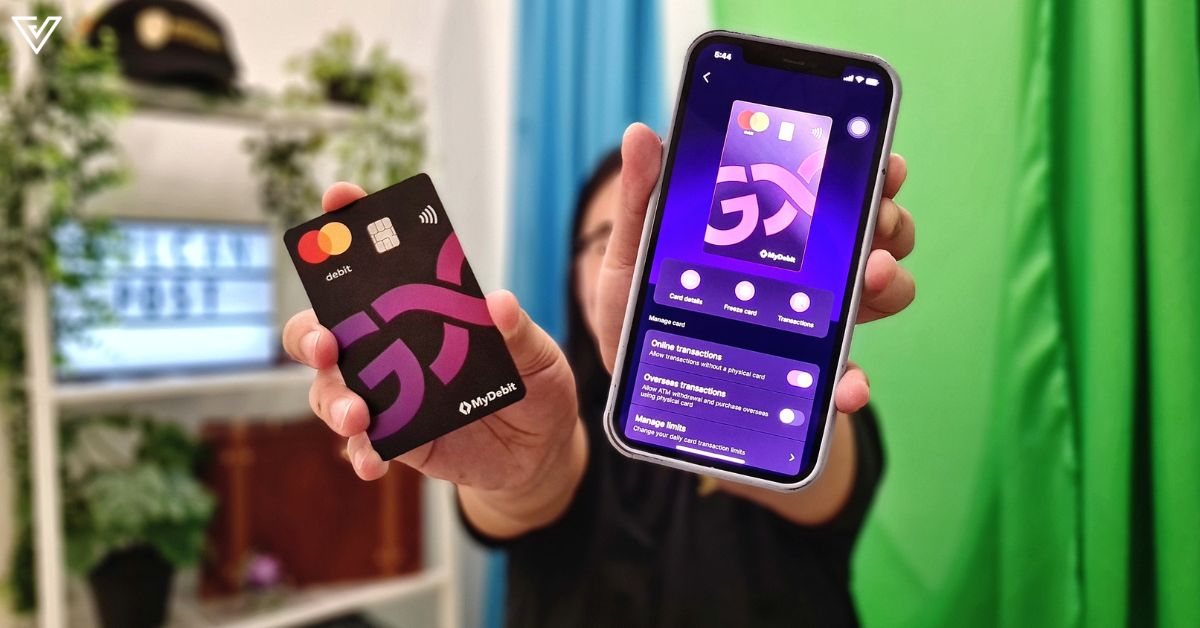
Powered by Grab, GXBank was the first digital bank in Malaysia to launch to the public late last year. You can read our more in-depth review here.
One of the biggest USPs of GXBank is its unlimited 1% cashback, which is why I deem it to be the best if you’re specifically looking for a new way to spend. The cashback is deposited daily.
Another great perk is that the ATM fees are waived for all MEPS ATMs nationwide. For context, usually, if you’re withdrawing money from another bank operator’s machine, there’s a fee of RM1.
As for the interest rate, though, it’s currently the lowest amongst the three options at 3.0% p.a. daily interest.
Another perk is that users get 1.5x GrabRewards when paying with GXBank for Grab services or to shop at Jaya Grocer.
What is the interest rate? 3.0% p.a. daily interest.
Is there a card? Yes.
Is there an ATM fee? No, it’s waived until December 31, 2024.
Is DuitNow QR transfer supported? Yes.
Best for savings: AEON Bank

Out of the three digital banks available right now, AEON Bank has the highest returns with a profit rate of 3.88% p.a. for its savings account and Savings Pots. Keep in mind that this rate is just for the promotional period until August 31, 2024.
However, it seems like AEON Bank doesn’t incentivise spending as much. That’s not to say it doesn’t incentivise it at all, though. With support for DuitNow QR, AEON Bank also offer perks such as 3x AEON Points collection when you spend with its debit card.
However, it’s currently quite tricky to add money to the bank, compared to GXBank and Boost Bank, which both have an “Add Money” button. Instead, you’d need to DuitNow transfer from the bank account you’re transferring from.
Read more about their features here.
What is the profit rate? 3.88% p.a. daily interest, paid at the end of the month.
Is there a card? Yes.
Is there an ATM fee? Yes, RM1.
Is DuitNow QR transfer supported? Yes.
Best for financial inclusion: Boost Bank
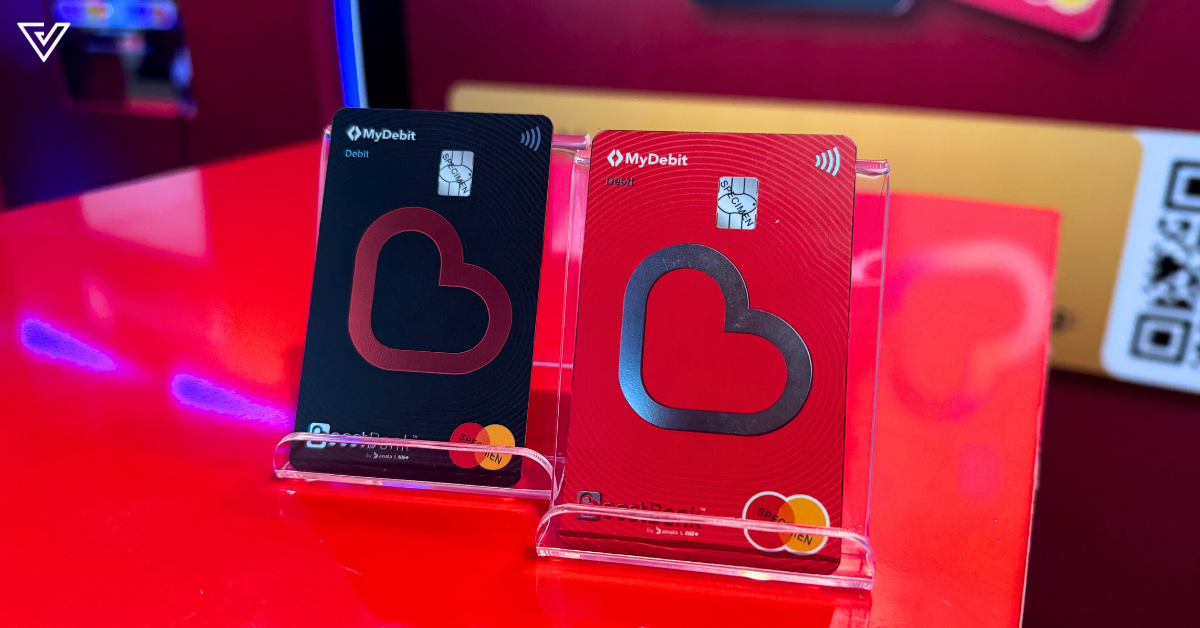
Boost Bank might be the latest to join this party, but it’s also a first in its own right. The first homegrown digital bank to launch in Malaysia, that is.
One of the top pulls of Boost Bank is that it specifically serves the unbanked, not just the underbanked.
What this means is that even people who don’t have a traditional bank account opened under their name can open a Boost Bank account online.
It also incentivises saving by offering up to 3.6% p.a. interest rate after you deposit a minimum of RM2,000 in your Boost Bank savings account or Savings Jar, which ranks you up to Platinum President.
This is a promotional interest rate valid from now until August 31, 2024, though. After that, it will go to a 3.2% p.a. rate.
Platinum President users also get to receive 3x Boost Stars when they spend pay with the bank through Boost eWallet.
The digital bank has also been teasing partnerships with well-known names like MYDIN and CelcomDigi, which will offer possibly higher interest rates or other promotional rewards.
You can learn more about their features in this article.
What is the interest rate? Up to 3.6% p.a. (depending on your account rank).
Is there a card? Not yet.
Is there an ATM fee? N/A
Is DuitNow QR transfer supported? Not on the app, so you’ll have to use Boost eWallet.
Something for everyone
Like all financial solutions in general, the “best” one might differ from person to person depending on your own preferences and lifestyles.
For example, if you’re already a loyal user of Grab, GXBank makes complete sense. As mentioned, it lets you earn 1.5x GrabRewards points on Grab services if you pay with the digital bank. You also get 1.5x GrabRewards when you shop at Jaya Grocer.
Meanwhile, if you always buy your groceries from AEON, having AEON Bank would be ideal as it lets you collect 3x AEON points when you spend with the Debit Card. Users also get 3,000 AEON points off bat for their introductory campaign, which is worth RM15.
As for Boost Bank, if you’re already a frequent user of Boost’s eWallet, it may make sense to use the digital bank as well. Once you’re a Platinum President user, you’ll earn 3x Boost Stars when you spend with the Boost eWallet, after all.
So really, the answer for which bank is the best one isn’t set in stone. It’s great that there are multiple options in the market now for Malaysians to choose based on their own needs and wants. And hey, you can always try out all three to see for yourself.
But as someone who is trying out all three digital banks currently, I’ll report back on which bank is the best fit for me, and why. Stay tuned!
- Read other articles we’ve written about digital banking here.
Also Read: Net zero explained: Why Amazon, Microsoft, & M’sia itself are pledging to be carbon neutral
Elon Musk threatens to ban Apple devices in his companies over partnership with OpenAI

It didn’t take long for the world’s most mercurial billionaire to stir the pot following the latest announcements from Apple’s Wordwide Developers Conference, where the company announced the Apple Intelligence suite of services and a partnership with ChatGPT’s creators at OpenAI.
While Tim Cook was quick to emphasise the complete security and privacy of Apple’s take on AI feeding off the data in your phones, tablets or laptops, Elon Musk fired a series of salvos, calling these assurances into this question, suggesting that Apple itself wouldn’t know what was going on with the information that OpenAI’s tools would have access to.
Continuing, he threatened to ban the use of Apple’s devices anywhere within his companies, should the integration happen at the Operating System level:
And visitors will have to check their Apple devices at the door, where they will be stored in a Faraday cage
— Elon Musk (@elonmusk) June 10, 2024
In his usual style, he didn’t pull any punches in any of a string of posts he unleashed on his own social media platform, drawing attention to potential security threats:
— Elon Musk (@elonmusk) June 10, 2024
He may have a point here…
Exactly! https://t.co/3tRVXFbQWG
— Elon Musk (@elonmusk) June 10, 2024
It is currently unclear how deep the integration between Apple and OpenAI will be in reality, despite reassurance that no private information but just the prompt itself is sent from the device for execution by ChatGPT.
Certainly, however, Elon throwing a spoke in the wheels is going to draw serious scrutiny to both companies.
It’s not about money but control
Of course, let’s not pretend it doesn’t benefit Musk himself, who was rumoured to have moved thousands of Nvidia GPUs from Tesla to his own AI venture, xAI, as he is looking to build his own stake in the accelerating artificial intelligence industry.
This follows his fervent criticism of OpenAI, which culminated in a lawsuit filed against the company and Sam Altman by Musk in February for violating the company’s original mission as a non-profit building AI tools for the benefit of humanity.
Instead, it is now a full-on for-profit business, which Musk alleges constitutes a breach of contract from when he co-financed the organisation’s founding back in 2015.
The problem isn’t really about OpenAI making money but rather the shift in motivation that it entails. Pursuing profits tends to make companies make risky decisions, not always with the best interest of their users in mind.
That said, while it is a valid security consideration, there seems to be more to Musk’s rants than just worry for millions of unsuspecting consumers.
This is about control over who defines the artificial intelligence standards, and it’s now clear he doesn’t want to be left out.
A serial entrepreneur that he is, with resources that few could match, Elon Musk wants a seat at the table, just like he bought himself one in the social media space by purchasing Twitter.
He understands that AI will soon affect every domain of our existence, and those who dominate it will get to decide how it works — including inside Musk’s own companies, which surely couldn’t do without the latest AI tools.
By lashing out against OpenAI, he’s not only voicing valid concerns but is also using them to position himself as the leader of the voiceless majority against the machinations of Silicon Valley (whether they are exaggerated or not), a man to be trusted by the common folk. Through that, he also buys himself influence and, if successful, a potential audience for competing AI solutions that xAI is developing.
Empty threats?
There’s just one problem with Elon’s threats to boycott Apple’s devices: the only mainstream alternative, Microsoft, is even more deeply intertwined with OpenAI that it poured $10 billion into and is de facto a co-owner of. Microsoft’s own Copilot AI
Therefore, this looks to be more a case of a hyperbolic social media tantrum, which Musk is adept at using, to rally people against the targeted companies to force them to keep their partnership relatively limited, providing him some PR leverage.
I wouldn’t expect Tesla’s or SpaceX’s engineers to swear off both Windows and macOS at work, given that much of the required software can run only on these platforms. And even Elon, the maverick that he is, can’t possibly hope to dislodge this gargantuan duopoly.
What he can attempt to do, however, is make people less trusting of OpenAI and buy himself a seat at the table deciding the future of artificial intelligence.
Featured image: Jean Nelson / depositphotos
Also Read: Tribe, Nvidia and DISG co-launch Southeast Asia’s first AI startup accelerator

